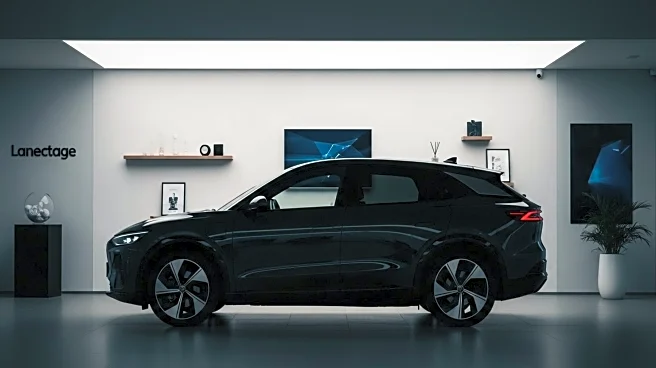What is the story about?
What's Happening?
Germany's EV market share reached 31.1% in September, with BEVs accounting for 19.3% and PHEVs at 11.8%. The Volkswagen ID.3 was the best-selling BEV, while the Tesla Model Y saw a decline in its ranking. Leapmotor introduced the B10 SUV, a competitively priced C-segment offering, starting at €29,900. The B10 features a 55 kWh LFP battery with a range of 361 km, positioning it as a strong value proposition in the market. The German auto market remains stagnant, with PHEVs driving growth at the expense of combustion-only powertrains.
Why It's Important?
The increase in EV market share in Germany reflects the growing consumer shift towards electric vehicles, driven by advancements in technology and competitive pricing. Leapmotor's entry into the market with the B10 SUV highlights the increasing competition among EV manufacturers, offering consumers more choices and potentially accelerating the transition to electric mobility. The decline in Tesla Model Y's dominance suggests changing consumer preferences and the impact of new entrants in the market. The stagnation in Germany's overall auto market underscores the challenges faced by traditional combustion engine vehicles.
What's Next?
As Germany's EV market continues to grow, manufacturers are likely to focus on expanding their product offerings and improving technology to capture market share. Leapmotor's competitive pricing strategy may prompt other manufacturers to adjust their pricing to remain competitive. The transition to electric vehicles is expected to continue, with PHEVs playing a significant role in the short term. The German government's policies and incentives will be crucial in supporting this transition and addressing economic challenges.
Beyond the Headlines
The debut of Leapmotor's B10 SUV in Germany signifies the increasing globalization of the EV market, with Chinese manufacturers expanding their presence in Europe. This trend may lead to greater collaboration and competition among international EV makers, influencing global market dynamics. The shift towards electric vehicles in Germany reflects broader environmental and regulatory pressures, as countries aim to reduce carbon emissions and promote sustainable transportation. The evolving market landscape may drive innovation and investment in EV technology, shaping the future of the automotive industry.
















